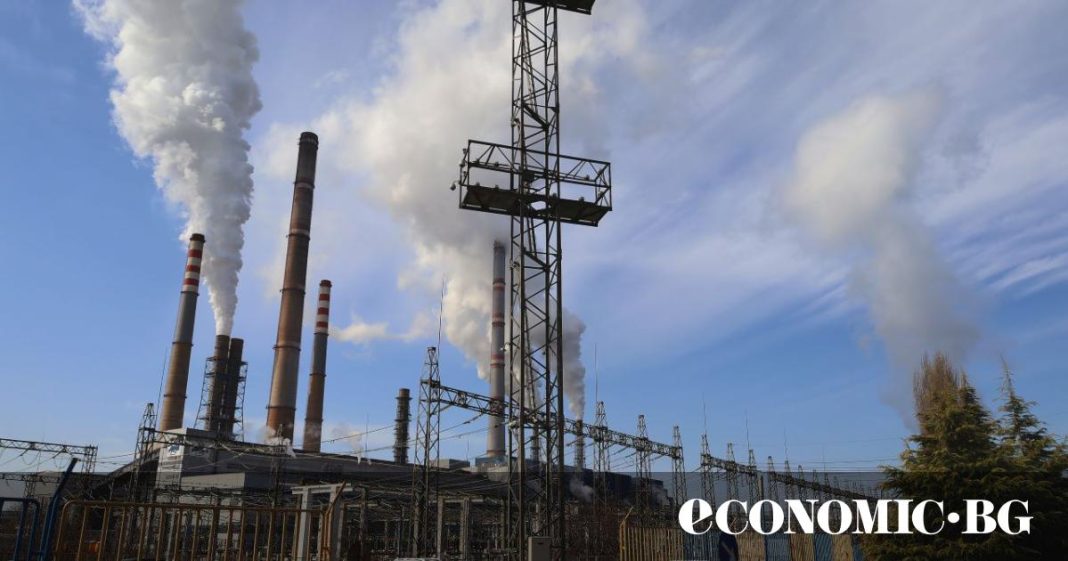The insane „Green Deal“ continues to be supported, even though it destroys our coal-fired power plants at the expense of solar and wind turbines, whose expensive electricity is paid for by Bulgarian businesses, and from 2026 by Bulgarian citizens. This is how we get to costly bills for Bulgarians, but cheap electricity exports at fixed prices to Ukraine, so much so that they even wanted to tie us with a 10-year contract.“
These words are part of a longer Facebook post by VMRO leader Krasimir Karakachanov that has been spreading rapidly on social networks in recent days.
In recent weeks, the European Union’s Green Deal has been under attack throughout the bloc, and Bulgarian politicians have not missed the opportunity to join the anti-green wave and use that impetus to spread disinformation.
Economic.bg decided to check Karakachanov’s words by consulting official institutions and experts.
Is the Green Deal destroying Bulgarian coal plants?
The European Union’s Green Deal is an ambitious climate policy that aims to make Europe the first climate-neutral continent by 2050. It was presented at the end of 2019, but shortly after, the world was rocked by COVID-19, which delayed the implementation of the plans in the document.
Bulgaria has not made a specific commitment to closing its coal-fired power plants within the framework of the European Green Deal but has made a commitment to reducing carbon emissions, which may lead to a gradual limitation of coal-based electricity production (also through the implementation of other measures).
In reality, electricity produced by thermal power plants is not affected by the regulations. Instead, it is becoming increasingly uncompetitive in the market due to the carbon pricing scheme. However, this has nothing to do with the Green Deal, but with much older European and global policies.
Bulgarian coal-fired power plants began paying for their carbon emissions in 2007 when the country joined the European Union and became part of the EU Emissions Trading System (EU ETS).
In the ETS first period (2007-2012), Bulgarian coal-fired power plants initially received free emission allowances, meaning they did not pay directly for carbon emissions, but had to report their pollution levels. In the second period (2013-2020), the free allowances began to gradually decrease. In 2013, these power plants began to buy part of their emission allowances on the carbon market.
The third and fourth periods of the EU ETS start after 2020, and since 2021 coal-fired power plants have already been paying almost entirely for their carbon emissions. The thing is, their price has increased significantly over the years, and while in 2013 it was around 5-10 euros/tonne CO2, by 2023 it exceeded 90 euros/tonne. In short: this has sharply increased the costs of running coal-fired power plants, making them increasingly unprofitable on the electricity market, unless they get state subsidies.
Yulian Popov, former Minister of the Environment and an energy expert, confirms that what influences the fate of Bulgarian coal-fired power plants is the price of emissions.
The emissions trading scheme has been in effect even before we entered the European Union, that is, we accepted it upon our entry into the EU,“ he commented to Economic.bg.
According to him, it is no surprise that carbon prices have risen to the levels they are at now.
He is adamant that the Green Deal does not affect Bulgarian coal-fired power plants in any way. It is other policies that the country has adopted that do that.
Popov explained that even if we were not in the EU, we would still be subject to regulations, for example, within two years the Carbon Border Adjustment Mechanism (CBAM) will come into effect, which will impose a „carbon duty“ on any third country that imports electricity, cement or steel into the EU.
The Recovery Plan
The Recovery and Resilience Plan emerged after the Green Deal, but it is not part of it. The EC says that despite the lack of a formal legislative framework for the European Green Deal, recovery and resilience plans are essential to achieving its objectives and turning its vision into reality.
Bulgaria’s Recovery and Resilience Plan and the Territorial Just Transition Plans specify 2038 as the target year for the gradual phase-out of coal-fired energy production,“ says a statement by the European Commission in response to Economic.bg query.
Popov, for his part, added that within the framework of the Recovery Plan, Bulgaria is committed to reducing emissions from 10 coal plants by 40% by 2026. „We have currently reduced them by 46-48%, that is, we have exceeded what we promised, absolutely regardless of the Green Deal.“
This promise and commitment have nothing to do with reduction. They are a result of coal simply being replaced by renewable energy and by energy efficiency to some extent.“
The difference between the Green Deal and the RRP is that the latter is proposed by Bulgaria to the European Commission and is not a policy imposed from outside.
What is the Green Deal?
The European Green Deal is a roadmap for transforming the EU economy into a sustainable one by turning climate and environmental challenges into opportunities and implementing a just and inclusive transition that covers all sectors of the economy.
The Green Deal is a collection of different laws – over 175 strategies and initiatives – related to air quality, food, agriculture, transportation, construction, etc., according to Popov.
As an EU member state, Bulgaria must align its policies with the objectives of the European Green Deal and contribute to the Union’s overall goal of reducing net greenhouse gas emissions by at least 55% by 2030 and achieving climate neutrality by 2050. Member States are currently in the process of updating their national energy and climate plans, setting out how they will contribute to achieving the EU’s 2030 targets. Bulgaria has submitted its final plan, which you can review here,“ a spokesperson for the European Commission in Bulgaria told Economic.bg.
Yulian Popov pointed out that it was the Green Deal that gave impetus to previously announced measures when the Russian gas crisis occurred and Europe was much more prepared to accelerate the absorption of green energy, which replaced gas. He added that over the past five years, gas consumption in Europe has been falling steadily, which is good because this reduces the impact of gas on the price of electricity.
„And without this organized legislation, we would have spent 2-3 years wondering what to do before finally realizing that we need to increase energy from other sources, renewable sources.“
The Green Deal has given us the opportunity to be more prepared and act faster. There is a positive effect on electricity prices as a result of the Green Deal.“
Co-Funded by the European Union. Views and opinions expressed are however those of the author(s) only and do not necessarily reflect those of the European Union or the Managing Authority. Neither the European Union nor the Managing Authority can be held responsible for them.
Translated by Tzvetozar Vincent Iolov
Източник: Economic.bg


